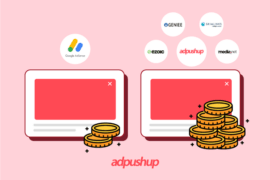Welcome to the ultimate comparison between AdSense and AdWords – two of the most powerful advertising platforms. Read more about – AdSense vs AdWords.
Whether you’re a small business owner or a web admin, you know that advertising is a crucial part of your online presence. In 2022, Google’s ad revenue amounted to 224.47 billion U.S. dollars.
With AdSense and AdWords, you can reach out to your target audience, promote your products and services, and grow your business. But which one should you use? That’s the million-dollar question.
In this post, we’ll provide you with a detailed comparison of AdSense and AdWords, so you can make an informed decision about which platform is best for your business.
We’ll dive into each platform’s features, benefits, and limitations and give you the tools you need to take your advertising game to the next level.
So, sit back, relax, and get ready to suit up – we’re about to clear all your doubts regarding AdSense vs AdWords.
Also Read: AdSense vs AdPushup Comparison
Definition of AdSense
As one of the most popular advertising platforms, AdSense has become the go-to choice for millions of businesses and webmasters. In this section, we’ll provide a brief overview of AdSense and explain what it is, how it works, and who it’s best suited for.
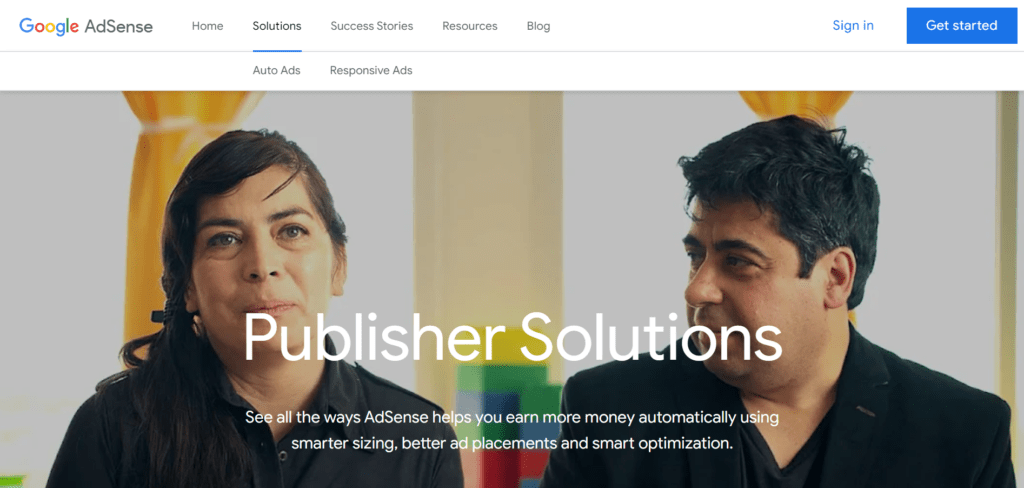
AdSense is a program offered by Google that allows businesses and web admins to display ads on their websites and earn revenue based on the number of clicks or impressions those ads receive. AdSense is free to use and easy to set up, making it a popular choice for businesses of all sizes. Though there are Adsense alternatives available that you an check out for maximizing your revenue.
According to a news from SEJ, Google is updating first-party cookie support with ad personalization capabilities. This change will surely increase revenue for AdSense users, as website visitors will see a more relevant selection of ads.
It is because the first-party cookies contain information about a user’s activity and also allow frequency capping on ads, which can potentially lead to higher revenue for AdSense users.
How Does AdSense Work?
AdSense uses a combination of algorithms and manual reviews to match ads with the content of your website. Once you’ve set up AdSense on your website, Google will display ads relevant to your content and audience. When a visitor clicks on an ad, you’ll earn a portion of the revenue that Google generates from that click.
Who is AdSense Best Suited For?
AdSense is best suited for businesses and web admins who want to monetize their website traffic by displaying ads. AdSense is particularly well-suited for websites that receive a lot of traffic, as the more clicks or impressions your ads receive, the more revenue you’ll earn.
Also Check: Know About Hidden AdSense Features, Get Ad Optimization Tips
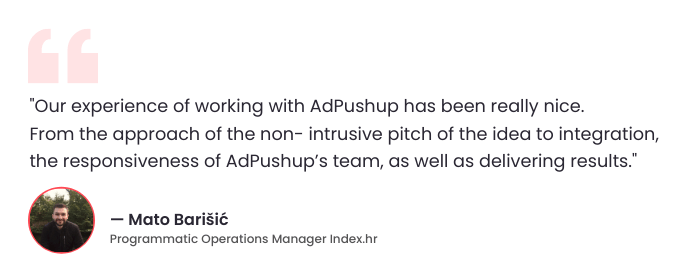
Key Features of AdSense
- Ad Formats: AdSense supports various ad formats, including display ads, text ads, and link units.
- Ad Targeting Options: AdSense offers various targeting options, including contextual targeting, placement targeting, and interest-based targeting.
- Payment Options: AdSense offers a range of payment options, including direct deposit, wire transfer, and checks.
AdSense is a powerful advertising platform that allows businesses and web admins to monetize their website traffic and earn revenue from displaying ads.
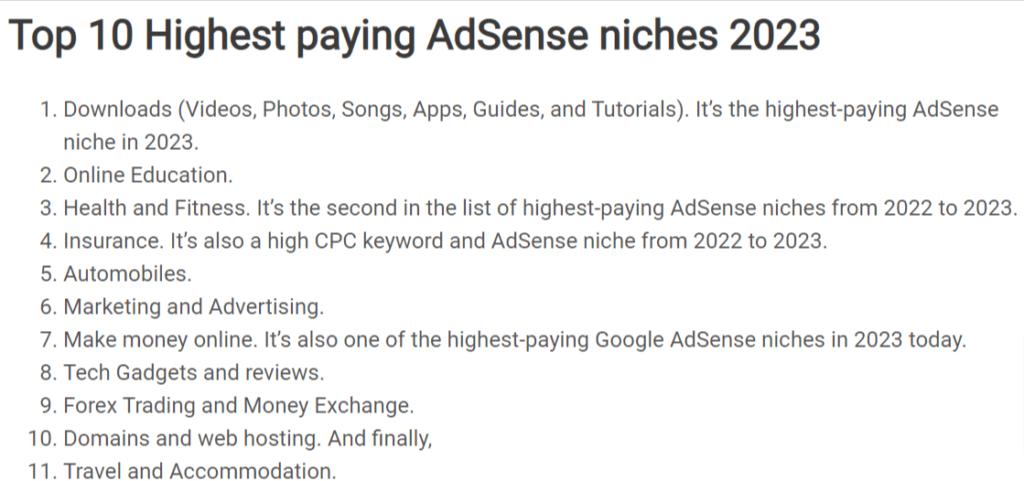
With a range of ad formats, targeting options, and payment options, AdSense is a versatile and flexible tool that can help you take your advertising game to the next level.
Definition of AdWords
AdWords is another powerful advertising platform offered by Google that enables businesses to display ads on Google’s search engine results pages and partner sites. In this section, we’ll provide a brief overview of AdWords and explain what it is, how it works, and who it’s best suited for.
AdWords is an advertising platform that allows businesses to create and display ads on Google’s search engine results pages and partner sites. AdWords incorporates a pay-per-click (PPC) business model. It means that you have to only pay when people click on your ad. AdWords is highly customizable and allows businesses to target their ads to specific audiences based on various criteria.
Last year on April 27 2022, Google officially announced the closure of old Google AdWords API. And introduced the new upgraded version of Google Ads API that is the modern programmatic interface to Google Ads and the next generation of the AdWords API.
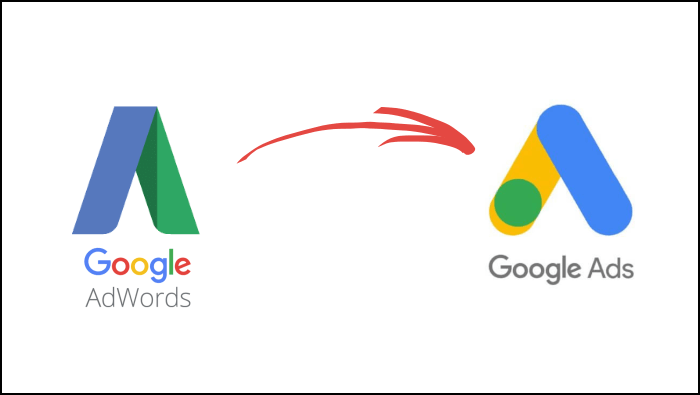
It enables developers to interact directly with the Google Ads platform, vastly increasing the efficiency of managing large or complex Google Ads accounts and campaigns. (Source: SEJ)
How Does AdWords Work?
AdWords uses a complex algorithm to determine which ads to display on search engine results pages and partner sites. When a user searches for a particular keyword, AdWords looks at the advertisers who bid on that keyword and determines which ads to display based on various factors, including bid amount, ad relevance, and ad quality.
AdWords also allows businesses to target their ads based on various criteria, including location, language, and device type.
Who is AdWords Best Suited For?
AdWords is best suited for businesses that want to drive traffic to their website and increase their online visibility. AdWords is particularly well-suited for businesses that want to target specific audiences and measure the performance of their ads.
Key Features of AdWords
- Ad Formats: AdWords supports various ad formats, including text ads, display ads, and video ads.
- Ad Targeting Options: AdWords offers a range of targeting options, including location targeting, language targeting, and device targeting.
- Bidding Strategies: AdWords offers a range of bidding strategies, including manual bidding, automatic bidding, and target cost-per-acquisition (CPA) bidding.
AdWords is a powerful advertising platform that allows businesses to create and display ads on Google’s search engine results pages and partner sites.
With a range of ad formats, targeting options, and bidding strategies, AdWords is a versatile and flexible tool that can help you reach your target audience and achieve your advertising goals.
Also Read: PPC Advertising: A Complete Guide
AdSense vs. AdWords – A Detailed Comparison
AdSense and AdWords are powerful advertising platforms offered by Google, but they have different purposes and distinct features. In this section, we’ll provide a detailed comparison of AdSense and AdWords, focusing on the similarities and differences between the two platforms.
Pricing
AdSense uses a revenue-sharing model, which means that website owners earn a percentage of the revenue generated from ads displayed on their site. AdWords, on the other hand, uses a pay-per-click (PPC) model, which means that businesses only pay when someone clicks on their ad.
Targeting Options
AdSense and AdWords offer various targeting options, including location targeting, language targeting, and device targeting. However, AdWords offers more advanced targeting options, such as remarketing, which allows businesses to target users who have already interacted with their websites.
Ad Formats
As mentioned earlier in the blog, AdSense supports various ad formats, including text ads, display ads, and link units. On the other hand, AdWords supports a broader range of ad formats, including text ads, display ads, video ads, and shopping ads.
Performance Metrics
AdSense provides website owners various performance metrics, including click-through rates (CTR), earnings per click (EPC), and page RPM. On the other hand, AdWords provides businesses with various performance metrics, including impressions, clicks, click-through rates (CTR), and cost per click (CPC).
AdSense is best suited for website owners who want to earn revenue from their site by displaying ads. At the same time, AdWords is best suited for businesses who want to drive traffic to their website and increase their online visibility through paid search advertising.
Both platforms offer various targeting options, ad formats, and performance metrics, but AdWords offers more advanced features and is better suited for businesses with more advanced advertising needs.
While AdSense and AdWords are both powerful advertising platforms offered by Google, they serve different purposes and have distinct features. By understanding the similarities and differences between the two platforms, you can determine which suits your specific advertising needs best.
Read More: Best PPC Ad Networks of 2023 (Top 15)
Pros and Cons of AdSense and AdWords
While both AdSense and AdWords offer robust advertising solutions, they each have pros and cons. Here’s a breakdown of the key advantages and disadvantages of using AdSense and AdWords for advertising.
Pros of AdSense
- Easy to set up and use
- No minimum traffic requirements
- Provides website owners with a passive income stream
- Offers a variety of ad formats, including display ads, text ads, and link units
- Provides detailed performance metrics, including CTR, EPC, and RPM
Cons of AdSense
- Revenue is shared between Google and the website owner
- Earnings can be unpredictable and depend on factors such as website traffic and advertiser demand
- Ads can sometimes be irrelevant or intrusive, affecting user experience
Pros of AdWords
- Provides businesses with a variety of targeting options, including location targeting and language targeting
- Offers more advanced targeting options, such as remarketing and custom intent targeting
- Provides businesses with control over their ad spend and bidding strategy
- Offers a wide range of ad formats, including text ads, display ads, video ads, and shopping ads
- Provides detailed performance metrics, including impressions, clicks, CTR, and CPC
Cons of AdWords
- Requires a budget to use effectively
- It can be complex and time-consuming to set up and manage
- Advertisers may face competition for keywords, leading to higher CPCs
- Requires ongoing optimization to achieve optimal results
AdSense is an excellent option for website owners who want to earn revenue from their site with minimal effort. At the same time, AdWords is best suited for businesses that want to drive traffic to their website and have more control over their advertising spend.
By understanding the pros and cons of each platform, you can make an informed decision on which one is best suited for your specific needs.
Choosing Between AdSense and AdWords
After comparing the two platforms, businesses and website owners might still wonder which is best for their specific advertising needs. Here are some factors to consider when making the decision:
Advertising Goals
Are you looking to generate more clicks on your website, or are you looking to sell products or services directly? AdWords might be the better choice if you’re looking for direct sales, while AdSense might be better if you’re looking to generate more clicks and impressions.
Target Audience
Who is your target audience, and where are they spending their time online? AdWords might be the better choice to target specific demographics, interests, or locations. AdSense might be a better choice if you’re targeting a broad audience or if your website covers a wide range of topics.
Read More: Audience Targeting – A Definitive Guide For Publishers
Budget
How much are you willing to spend on advertising? AdWords can be more expensive than AdSense, but it also provides a higher return on investment if you can optimize your ads for maximum impact.
Competition
How competitive is your industry or niche? AdWords might be more effective in highly competitive markets where you need to stand out. At the same time, AdSense might be more effective in less competitive markets where fewer advertisers are bidding for ad space.
Final Thoughts
Ultimately, the decision to use AdSense or AdWords (or both) depends on various factors, such as the nature of the business, the target audience, the budget, and the specific advertising goals.
While both platforms offer unique features and benefits but have drawbacks and limitations, it’s essential to weigh the pros and cons carefully and choose the platform (or combination of platforms) that best suits your needs.
What do you think about AdSense and AdWords? Have you used one or both of these platforms before? What have your experiences been like? We’d love to hear your thoughts and insights.
Grow your ad revenue by up to 40% with a Google Certified Publishing Partner. Sign up here for the free website monetization consulting.
FAQ – AdSense vs. AdWords
AdSense is a platform for website owners to display ads on their site and earn revenue, while AdWords is a platform for businesses to display ads and drive traffic and sales. In other words, AdSense is for publishers, and AdWords is for advertisers.
Yes, it’s possible to use both AdSense and AdWords. Many website owners use AdSense to earn revenue from their traffic while also using AdWords to drive traffic and sales to their sites.
The answer to this question depends on your specific goals and needs. AdSense is better for publishers who want to monetize their traffic, while AdWords is better for businesses who want to drive traffic and sales. Evaluating your own goals and needs is essential when deciding which platform to use.
You can use AdSense and AdWords together to maximize your advertising potential. AdSense can help you earn money by displaying ads on your website, while AdWords can help you drive traffic to your website through targeted ads.
AdSense pays a variable amount per click, depending on several factors, such as the advertiser’s bid, the ad’s relevance to the content, and the website’s overall performance. The payout can range from a few cents to several dollars per click.

Shubham is a digital marketer with rich experience working in the advertisement technology industry. He has vast experience in the programmatic industry, driving business strategy and scaling functions including but not limited to growth and marketing, Operations, process optimization, and Sales.



